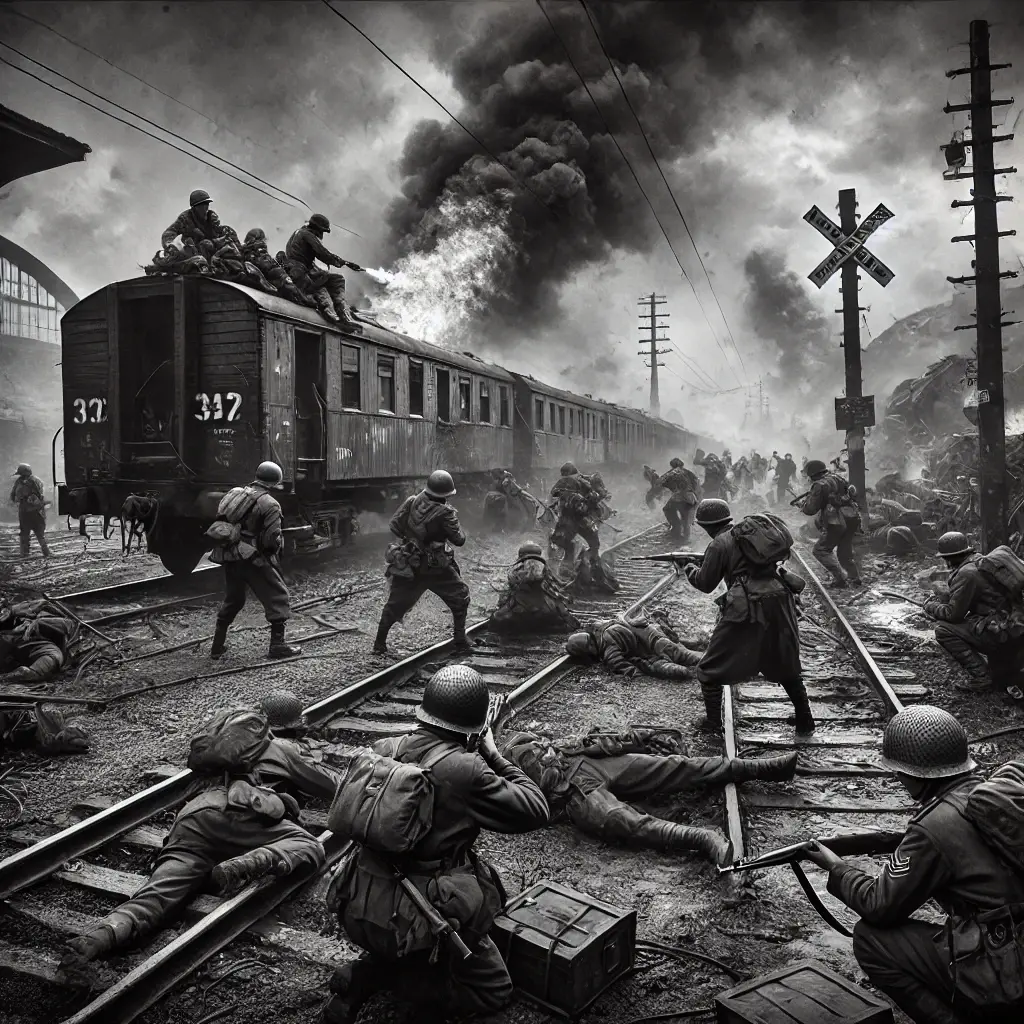“Mein Kampf” was written by Adolf Hitler during his imprisonment in Landsberg Prison, following the failed Beer Hall Putsch of November 1923. This attempted coup aimed to overthrow the Weimar Republic and establish a new government based on nationalist and fascist principles. Hitler’s incarceration provided him with the time and motivation to articulate his beliefs and political strategies, which he hoped would resonate with a broader German audience.
The book is divided into two volumes. The first volume, published in 1925, details Hitler’s early life, experiences in Vienna, participation in World War I, and his political awakening. It provides a narrative of his personal history intertwined with his ideological development. The second volume, released in 1926, focuses on his plans for Germany’s future, outlining the political and social framework he envisioned for the nation.
“Mein Kampf” is notorious for its virulent anti-Semitism. Hitler uses the text to propagate the idea of the Aryan race’s superiority and the need for racial purity. He blames Jews for many of Germany’s problems, including its defeat in World War I and the economic struggles of the Weimar Republic. This racist ideology would later be central to the policies of the Nazi regime, leading to the Holocaust and the systematic extermination of six million Jews.

In addition to anti-Semitism, “Mein Kampf” expresses intense anti-Bolshevik sentiments. Hitler viewed communism as a significant threat to Germany and associated it with Jewish influence, referring to it as “Jewish Bolshevism.” He believed that defeating communism was essential for the survival and prosperity of the German people. This fear of communism helped to unite various right-wing factions and consolidate support for the Nazi Party.
German nationalism is another dominant theme in “Mein Kampf.” Hitler envisioned a unified and powerful Germany that would reclaim its lost territories and expand its borders to provide living space (Lebensraum) for the Aryan race. This expansionist policy aimed to secure resources and land for future generations of Germans. This idea of territorial expansion and racial purity was later implemented through aggressive military campaigns during World War II.
The publication of “Mein Kampf” initially received mixed reactions. Some dismissed it as the ramblings of a failed revolutionary, while others saw it as a serious political treatise. Despite its dense and often incoherent prose, the book gained a significant following, particularly among nationalist and right-wing groups. Its ideas began to shape the political discourse in Germany, especially as the country grappled with economic instability and social unrest.
Hitler’s rise to power in 1933 transformed “Mein Kampf” from a fringe manifesto to a central text of Nazi ideology. The book became required reading for members of the Nazi Party and was often given as a gift to newlyweds and soldiers. Its widespread distribution helped to indoctrinate millions of Germans with Hitler’s extremist views, laying the ideological groundwork for the policies of the Third Reich.
The impact of “Mein Kampf” extended beyond Germany. As Hitler’s power grew, so did international awareness of his writings. The book was translated into multiple languages, providing a glimpse into the dangerous and expansionist ambitions of the Nazi regime. Foreign leaders and analysts used “Mein Kampf” to understand Hitler’s intentions and the potential threat he posed to global peace and stability.
During the war, “Mein Kampf” continued to be a tool for Nazi propaganda. It was used to justify the regime’s actions, from the annexation of territories to the persecution of Jews and other minorities. The book’s themes resonated with the Nazi vision of a racially pure and dominant Germany, reinforcing the brutal policies implemented during the Holocaust and the occupation of Europe.
After World War II, “Mein Kampf” was banned in Germany and many other countries due to its inflammatory content and association with the atrocities committed by the Nazi regime. The Allies sought to suppress its circulation to prevent the spread of Nazi ideology. However, the book remained available through various channels, and its legacy continued to provoke debate and controversy.
In recent years, “Mein Kampf” has been republished with extensive scholarly annotations and critical commentary. These editions aim to provide historical context and counteract the book’s dangerous propaganda. Scholars analyze its content to understand the origins and development of Nazi ideology, exploring how such extremist beliefs can take root and lead to catastrophic consequences.
The enduring relevance of “Mein Kampf” lies in its role as a cautionary tale. It serves as a stark reminder of the power of words and ideas to incite hatred and violence. The book’s publication and the subsequent rise of the Nazi regime highlight the importance of vigilance against extremist ideologies and the need to promote tolerance, understanding, and democratic values.
“Mein Kampf” also underscores the responsibility of political leaders and intellectuals to challenge and counteract hate speech and propaganda. The failure to adequately address the dangerous ideas propagated by Hitler and the Nazi Party contributed to the escalation of violence and the eventual outbreak of World War II. This lesson remains pertinent in contemporary discussions about the limits of free speech and the role of education in preventing radicalization.
The historical significance of “Mein Kampf” extends to its impact on post-war Germany and the process of denazification. The country’s efforts to confront its Nazi past and rebuild a democratic society involved a critical examination of the ideologies espoused in the book. This introspection was essential for Germany’s transformation into a modern, pluralistic state committed to human rights and the rule of law.
In a broader context, “Mein Kampf” has influenced the study of totalitarianism and the dynamics of extremist movements. Historians and political scientists examine the book to understand how authoritarian leaders exploit economic and social crises to gain power. Hitler’s use of propaganda, charismatic leadership, and exploitation of public discontent provides insights into the mechanisms of totalitarian control and the manipulation of mass psychology.

Ultimately, “Mein Kampf” remains a chilling testament to the destructive potential of extremist ideologies. Its publication on July 18, 1925, marked the beginning of a dark chapter in human history, one that continues to resonate as a warning against the perils of hatred, intolerance, and unchecked political ambition. The book’s legacy is a powerful reminder of the need for vigilance, education, and the defense of democratic principles to prevent the recurrence of such tragedies.
